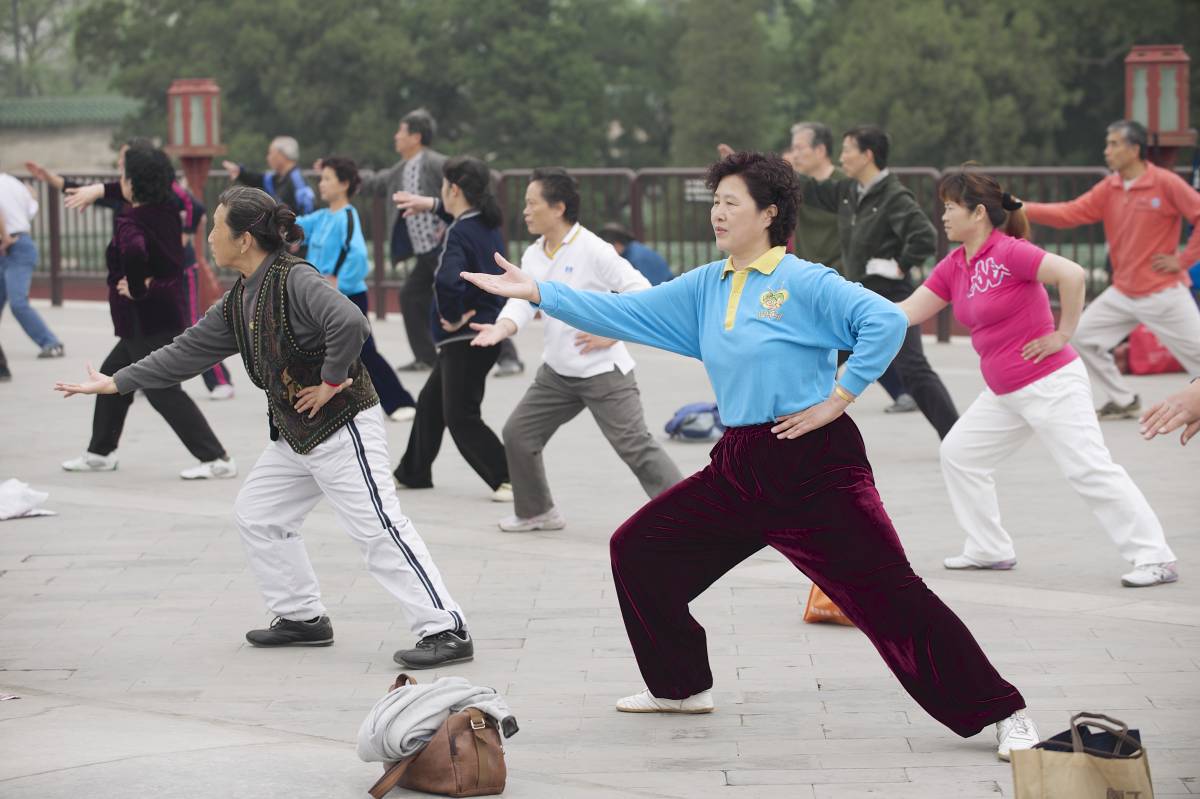Practising tai chi may help to reduce Parkinson's symptoms and complications for several years
Practising the Chinese martial art known as tai chi on a regular basis could help people cope with Parkinson’s for several years. An article published online in the Journal of Neurology Neurosurgery and Psychiatry today (25 October) notes that the practice is linked to a slower progression of the disease and lower doses of medication over time.
As yet, there is no cure for Parkinson’s, and while drugs can improve clinical symptoms, they don’t treat all the manifestations of the disease. And there’s no evidence that they slow progression either, explain the researchers.
The lead author is Dr Gen Li, from the Department of Neurology and Institute of Neurology at Ruijin Hospital, Shanghai Jiao Tong University School of Medicine, Shangha. He and five colleagues monitored two groups of patients with Parkinson’s from January 2016 to June 2021. One group of 147 patients practised tai chi twice a week for an hour, aided by attending classes to improve their technique. The other group of 187 patients continued with their standard care but did not practise tai chi.
Disease progession 'slower' in tai chi group
The severity of the disease was formally assessed in all the participants at the start of the monitoring period, and disease progression, including increases in the need for medication, were subsequently monitored in November 2019, October 2020 and June 2021.
The extent of movement and other symptoms, such as autonomic nervous system function (to include bowel movements, urinary and cardiovascular issues); mood, sleep quality, and cognition; and the prevalence of complications, such as dyskinesia (involuntary movement); dystonia (abnormal muscle tone); decline in responsiveness to drug treatment over time; mild cognitive impairment; hallucinations; restless leg syndrome, were also tracked, using validated scales.
The disease severity, medication use, sex, age, and education level, were similar in both groups. However, disease progression was slower at all monitoring points in the tai chi group, as assessed by three validated scales to assess overall symptoms, movement, and balance.
Tai Chi retains the long-term beneficial effect on [Parkinson’s], indicating the potential disease-modifying effects on both motor and non-motor symptoms, especially gait, balance, autonomic symptoms and cognition [Gen Li et al]
The number of patients who needed to increase their medication in the comparison group was also significantly higher than it was in the tai chi Group: 83.5 per cent in 2019 and just over 96 per cent in 2020 compared with 71 per cent and 87.5 per cent, respectively.
Cognitive function deteriorated more slowly in the tai chi group as did other non-movement symptoms, while sleep and quality of life continuously improved. The prevalence of complications was significantly lower in the tai chi group than in the comparison group: dyskinesia 1.4 per cent vs 7.5 per cent; dystonia 0 per cent vs 1.6 per cent; hallucinations 0 per cent vs just over 2 per cent; mild cognitive impairment 3 per cent vs 10 per cent; restless legs syndrome 7 per cent vs 15.5 per cent.
Falls, dizziness, and back pain were the three side effects reported by study participants, but these were all significantly lower in the tai chi group. While 23 people sustained a fracture, these all occurred during routine daily life and were fewer in the tai chi group: six vs 17.
Caveats and conclusions
As the study was observational in nature, Dr Li and colleagues acknowledge that cause and effect cannot be established. In addition, a relatively small number of participants were involved and was they were not assigned randomly to their group.
Nevertheless, they conclude: ‘Our study has shown that Tai Chi retains the long-term beneficial effect on [Parkinson’s disease], indicating the potential disease-modifying effects on both motor and non-motor symptoms, especially gait, balance, autonomic symptoms and cognition.’
Dr Li and his co-writers add: ‘[Parkinson’s disease] can worsen motor function and non-motor symptoms progressively with time, resulting in disability and influencing the quality of life. The long-term beneficial effect on [the disease] could prolong the time without disability, leading to a higher quality of life, a lower burden for caregivers, and less drug usage.’
Parkinson’s fact file
The disease is a debilitating and progressive neurodegenerative disorder, characterised by slowness of movement, resting tremor and stiff and inflexible muscles.
It is the fastest growing neurological condition in the world, with the numbers of those affected projected to reach nearly 5 million by 2030 in China alone. In the UK two people are diagnosed with the disease every hour, according to Parkinson’s UK.
To access the article – titled Effect of long-term Tai Chi training on Parkinson’s disease: a 3.5-year follow-up cohort study doi 10.1136/jnnp-2022-330967 – click
Author: Ian A McMillanShare it with















